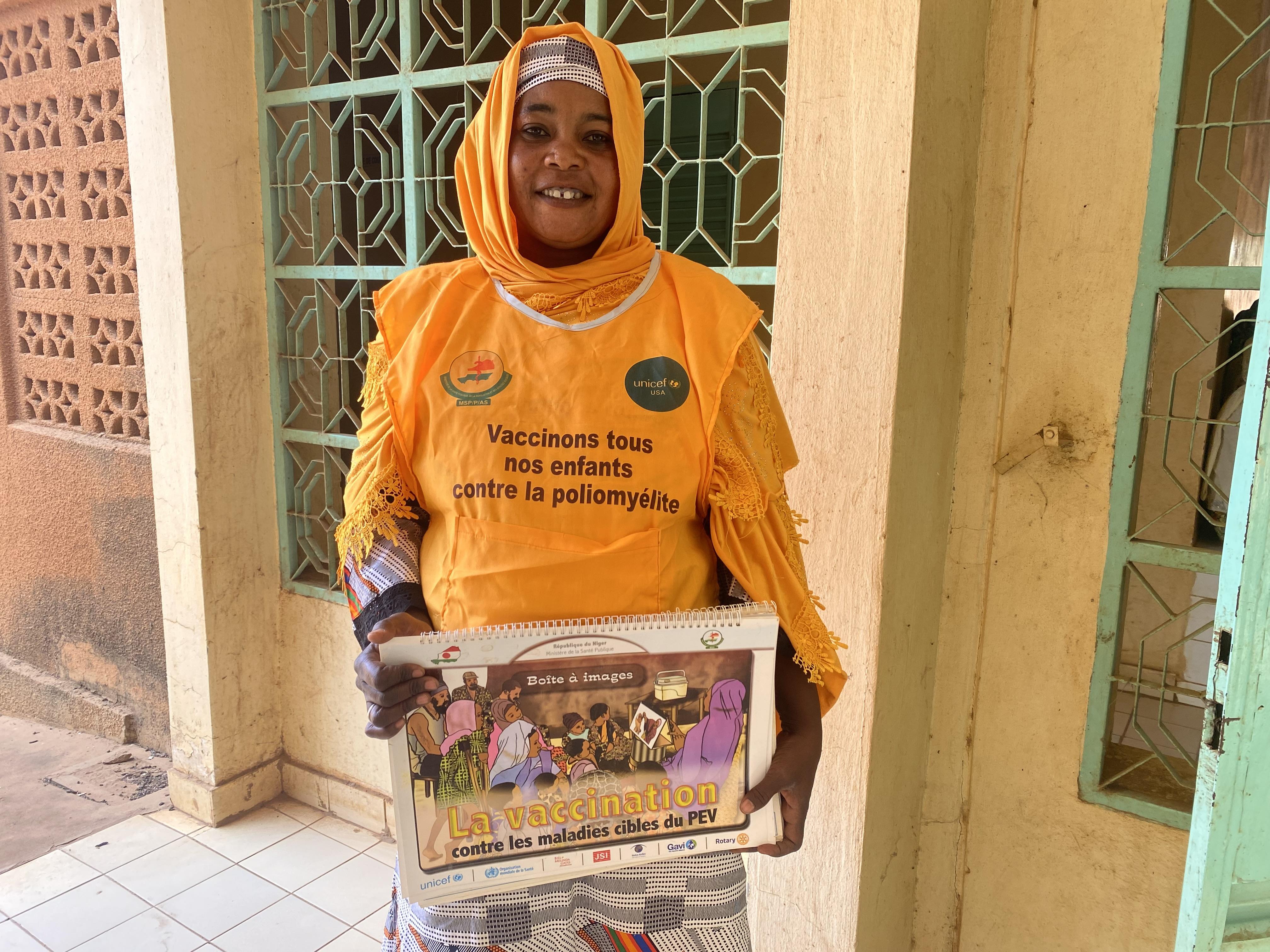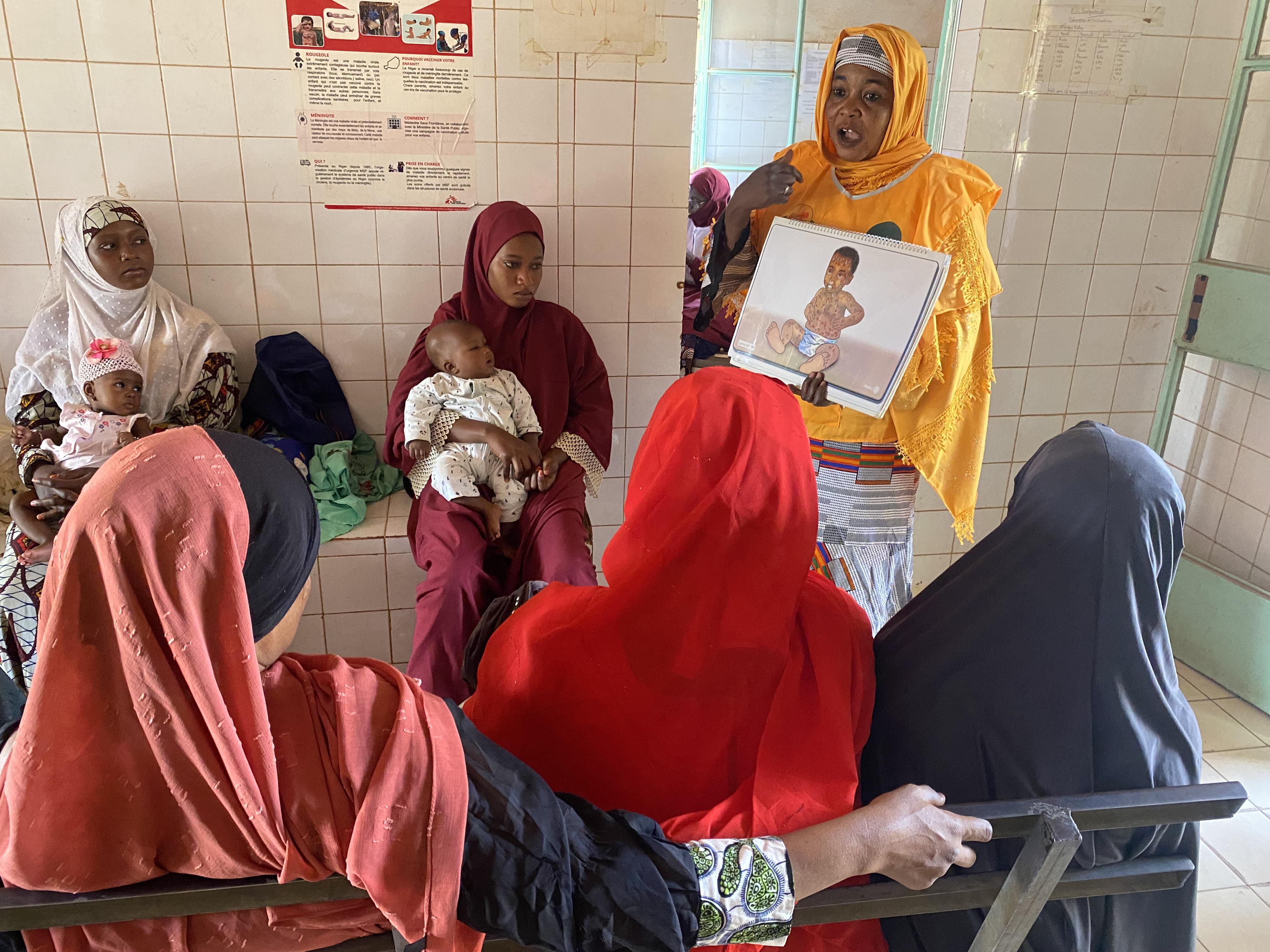Empowering Families Through Vaccination
Banifandou’s Kadidjatou counters rumors and mobilizes families to embrace routine immunization. Her neighbor-to-neighbor approach highlights the vital role of women in championing polio vaccination.
KADIDJATOU, A MODEL OF COMMITMENT IN BANIFANDOU
Forty-four-year-old Mrs. Kadidjatou lives in the Banifandou neighborhood of Niamey’s 3rd commune. A mother of four, she volunteers at the Banifandou Integrated Health Center (CSI). For several years, Kadidja—as her friends affectionately call her—has been committed to promoting positive maternal and child health behaviors in her community. Her dedication is driven by her compassion:
“I love to help. Working as a mobilizer allows me to be useful to my community; it’s deeply rewarding, and no money can buy that."
In her quest to raise awareness for children’s well-being, nothing dampens Kadidja’s resolve—not even the sometimes unwelcoming attitudes of heads of households, or of other women in her community. Whether she faces insults or accusations of helping “white people” supposedly aiming to limit births, our determined forty-something responds with patience, rallying families and communities to fight polio during mass campaigns and between campaigns.
When confronted by less receptive parents, Kadidja remains calm and takes her time to dismantle any conspiracy theories:
“If the whites wanted to harm us, why would they use only the polio vaccine? …Of all the rumors about the polio vaccine, which one has been proven? … Despite everything, our women continue to give birth … and clearly, there are fewer polio-related disabilities since this vaccination was introduced here.”
She concludes with wise advice:
“Let’s trust our health authorities; they have no reason to hurt us.”
After more than a decade of championing polio vaccination, Kadidja observes:
“Over time, many families—even their heads—are more open to the messages. That makes our work easier.”
Reflecting on the importance of women mobilizers in promoting vaccination practices among families and within the community, Kadidja offers a keen insight:
“Our customs demand it: no man, unless permitted—whether the head of the family is present or not—can simply enter another family’s personal space. That’s the value of women’s involvement in fighting polio among families.”
She adds:
“Women trust each other more; they’re more inclined to talk sister to sister.”
A long-standing activist in the fight against polio, Kadidja calls on various stakeholders to recognize their responsibilities in ensuring every child’s well-being.
To parents, she says:
“God has entrusted children to us … it’s our duty to take care of them,”
because, as Kadidja notes,
“The biggest obstacle to vaccinating children is parental determination.”
Speaking to her fellow mobilizers, she states:
“No one forced us to do this … so we must carry out our work with dedication and responsibility. In my case, thanks to this work … I’ve received two awards from SONGE and TCA. I’m proud to have been recognized among many others.”
Kadidja shares her successes with her supportive husband. She highlights:
“He’s the one who encourages me to keep going; he’s never stood in my way. On the contrary, no matter the hour—day or night—like a true partner, he lets me go wherever duty calls.”
She also urges community leaders to take ownership of vaccination efforts for the good of families and the community.
Lastly, Kadidja addresses UNICEF, saying:
“We don’t feel acknowledged … we hope for regular refresher training … and a culture of excellence through incentives,”
adding:
“We’d like UNICEF Niger to further support our government in this task.”


Writing Team:
- Raissa Edwige Vanian, Chief of SBC Section
- ABBA Dan Dibi Haroune, SBC Specialist, Niamey
- Pie Roger Bofunga Lohandjola, Stop Team 54, UNICEF Niger
- Gabriela Maria Moreira Da Silva, Gender Programme Specialist
- ABDOU Ali, SBC Specialist, Niamey
- Mme Hammatou Fati Maiga, Communications Officer, DRSP/P/AS NY
- Mme Mamane Fati, Communications Officer, DRSP/P/AS NY
- Mme Amadou Halima Hamidou, Communications Officer, DSNY III
Photo Credits: ©UNICEF Niger/ Niamey, March 2024/Haroune ABBA

